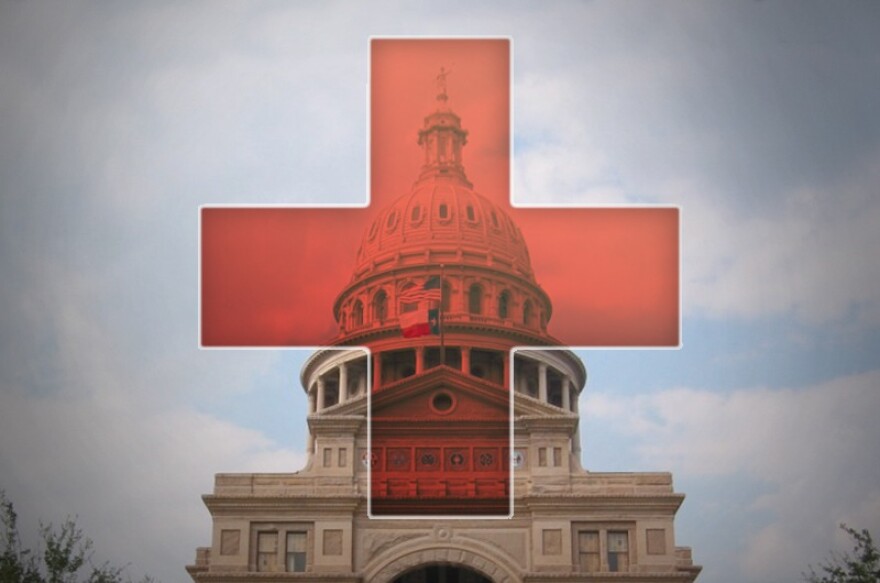The battle over funding the Women’s Health Program was one of the most contentious fights in the 2011 Texas legislative session. The program provided family planning and healthcare services for low-income women who, if they became pregnant, would qualify for Medicaid.
Anti-abortion lawmakers led the legislature’s Republican majority in the effort to strip all funding from the Medicaid program that was going to Planned Parenthood facilities. The federal government stepped in and pointed out that federal programs can’t restrict which healthcare providers people can choose. So the state stopped taking federal funds and created a state run, and funded, program.
Now two years later lawmakers have tinkered with those decisions made in 2011.
The cuts in 2011 were made to starve Planned Parenthood of state funds. Conservative lawmakers didn’t want any public money to flow to the organization, because it provides abortion services, even though no abortions were performed using money from the Women’s Health Program.
Sarah Wheat is with Planned Parenthood of Greater Texas. She says the effect of the cuts reached beyond the targeted clinics.
“Of the 60 health centers who closed around the state, about 12 of those were Planned Parenthoods, and the rest were just simply independent family planning clinics. So we’ve seen, especially in smaller, rural communities, the valley, West Texas, they’ve had the most negative impact, because there has not be enough philanthropic and community dollars to step in and fill the gap," Wheat said.
And critics like Wheat say the new state run Women’s Health Program hasn’t caught up yet. Initial provider lists for the state run program incorrectly included clinics that didn’t accept patients on the Women’s Health Program. And they double counted some doctors who worked out of more than one clinic.
The state Health and Human Services Commission’s Stephanie Goodman agrees rural access is a concern.
“You could’ve had a community that had a planned parenthood and we may be having trouble finding another clinic there. Likewise, you could have a community that didn’t have a Planned Parenthood clinic in the first place, but does have a different kind of family planning clinic," Goodman said. "So, there are probably some areas in rural Texas where you have to drive farther. There may be some, where help is actually closer. The goal of course is to make sure help is within a reasonable distance for every woman, wherever she is in Texas.”
One change made this session was a restoration of tens of millions of dollars to family planning and birth control that had been cut in 2011. A report by HHSC said cutting those funds could lead to 24-thousand unplanned pregnancies, costing the state $273 million dollars.
And the state is continuing to recruit new providers for the program to fill gaps left by excluding Planned Parenthood. Although HHSC’s Stephanie Goodman says the program probably won’t reach pre-cut 2011 levels even with new doctors.
“We expect, to be honest, that the level of services will drop some, not because the capacity isn’t there to serve women, but because we know a lot of women who were getting their services through Planned Parenthood will continue to do so. And that’s certainly their right," Goodman said.
We’ll be breaking down other outcomes from the session over the next few weeks. But wait Ben! Isn’t there a special session on redistricting happening right now? What’s going on there? The answer is, little to nothing.
The Senate did schedule 4 committee hearings over the next week in various spots around the state. The House? Well it gaveled in Monday afternoon and promptly gaveled out until June 17th.
So, not much going on. But things could get a little more exciting soon. If Gov. Rick Perry decides to add additional items to the special session agenda, he’ll most likely do it before the end of the week.
But all this inaction does give me another chance to remind you about our new schedule here at Agenda Texas. Regular afternoon segments will still air Tuesdays and Fridays. Along with occasional, ongoing politics and policy coverage other days.





